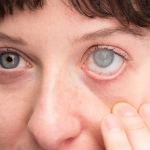Glaucoma is a big concern related to eye health. If not treated, it might impair your vision and ultimately lead to blindness. Nonetheless, the rate of glaucoma-related vision loss is reducing by roughly 50%. This is owing to new developments in medicine and technology, such as glaucoma surgery. However, many patients are still unsure of what to expect from glaucoma treatment. Continue reading to discover more about the eye surgery and healing procedure.
Glaucoma is an eye illness that causes pressure to build up inside your eyeball, potentially damaging delicate, crucial tissues near the rear of your eye. The majority of these disorders are progressive, meaning they worsen with time. As they progress, they may eventually result in irreversible vision loss and blindness. Glaucoma is the second largest cause of blindness globally.
Symptoms and Causes
Glaucoma usually doesn't show symptoms in the early stages. Most people don't realize they have it until some vision is already lost. That's why regular eye checkups are very important, especially if you are over 40, have a family history of glaucoma, or have conditions like diabetes or high blood pressure. Once diagnosed, your eye doctor will explain the type of symptoms you have and what glaucoma treatment options are available.
The following are some common glaucoma symptoms:
- Headaches
- Blurred vision
- Eye pain or pressure
- Red or bloodshot eyes
- Double vision
- Gradually developing low vision
How Glaucoma Treatment Can Prevent Vision Loss
Glaucoma is typically caused by pressure on the optic nerve. This causes fluid buildup, which results in clogging and drainage concerns. This can then damage the retina and cause blindness. The worrisome issue is that 50% of glaucoma patients are unaware that they have the illness. Most kinds of glaucoma do not cause any symptoms. However, the goal is to detect and control the condition before it causes visual loss.
Proper testing and care are essential for establishing whether you have the condition. This emphasizes the importance of scheduling regular eye checkups with your doctor. They will measure ocular pressure and inspect the optic nerve.
Some of the most likely glaucoma treatments are:
Eye drops
These are usually the first step. The drops help reduce the fluid in your eye or improve its drainage. You may need to use them every day, sometimes more than once.
Medications
This mostly includes drugs that reduce pressure inside your eye. They can prevent glaucoma from occurring if you have higher-than-normal intraocular pressure (ocular hypertension) or delay it from progressing to the point where it causes damage and symptoms.
Glaucoma surgery
Several surgical procedures are available for glaucoma treatment. The two most prevalent treatments for glaucoma are filtration surgery and laser surgery. Your eye doctor will advise you on which option is ideal for your specific situation. Surgery improves the drainage of aqueous humor fluid, which lowers pressure inside your eye. Trabeculectomy, tube shunts, laser treatment, and minimally invasive glaucoma operations are among the available surgical alternatives.
What to Expect After Glaucoma Treatment?
You can expect the following after completing the glaucoma surgery:
- You should not drive following glaucoma surgery. However, the doctor will let you drive after at least one week following surgery.
- After surgery, patients should rest well. In addition, the patient should avoid exercising since the eyes require time to recuperate correctly.
- Wear glasses to protect your eyes from sunshine, dust, and air.
- Maintain good hygiene by washing your hands with soap and lukewarm water. This is done to prevent eye infections.
- Proper eye healing is dependent on how closely you follow your doctor's directions.
- Patients who use steroids should discontinue them since they will prolong the healing process.
The Verdict
Glaucoma treatment is not a one-time thing, it's an ongoing journey. The goal is to protect your vision and maintain your quality of life. With regular monitoring, the right treatment plan, and a little commitment, many people with glaucoma continue to lead full, active lives. Remember, early detection and consistent care are your best tools in managing glaucoma. Always keep in touch with your eye doctor and never hesitate to ask questions about your treatment or eye health.






